
If you’re expecting a little one, you may be stressing about what you can and can’t do while pregnant. I know I was!
When I first found out I was pregnant, I was anxious about doing something wrong and constantly researching every question that popped into my head. Can I eat this? Can I do that? Will this hurt the baby? I was so stressed and paranoid about everything. Google, pregnancy forums, and mommy blogs were my best friends.
But as the weeks progressed, I started worrying less and less. This was probably because I was focused more on the fatigue, morning sickness, food aversions, and mood swings that took over. The first trimester can be tough.
When I made it past week thirteen, I was SO happy to start the second trimester. I was more than ready for a boost in energy, glowing skin, and a normal appetite. If this is where you’re at in your pregnancy, congratulations! You made it through the first trimester 👊.
Now that you’ve entered a new phase of pregnancy, you may be wondering what will change and what else you should avoid as your baby and body grow. With increased energy levels and appetite, it can be easy to forget what you need to stay away from while pregnant.
To help, I spent some time going through all of my notes and research, and I’ve compiled a list of pregnancy do’s and don’ts that are especially relevant for those in the second trimester.
1. Foods to avoid
A healthy, balanced, nutritious diet is incredibly important for your health and the health of your baby. Making sure you get enough vitamins, minerals, proteins, fats, and carbohydrates will not only help your baby develop correctly, but it will also help prevent pregnancy complications.
Avoiding harmful foods and beverages is just as important. With an increased appetite and cravings, it can be hard not to eat whatever is closest and most convenient, no matter how healthy or unhealthy it may be. Still, there are several foods pregnant women need to limit or stay entirely away from.

Seafood
When it comes to eating seafood, you need to be careful about what type of fish you are eating.
Avoid eating fish with high levels of mercury. Mercury is highly toxic and can be harmful to your baby. Fish with high levels of mercury include tuna (especially albacore tuna), swordfish, shark, and king mackerel.
Not all fish are high in mercury, and some can be quite beneficial during pregnancy. Fish such as shrimp, salmon, catfish, and sardines are low in mercury and high in omega-3 fatty acids, which is essential for your baby.
With that said, you should still limit your intake of low mercury fish to 2-3 portions per week.
So, make sure to double-check the mercury levels in any seafood you plan to eat.
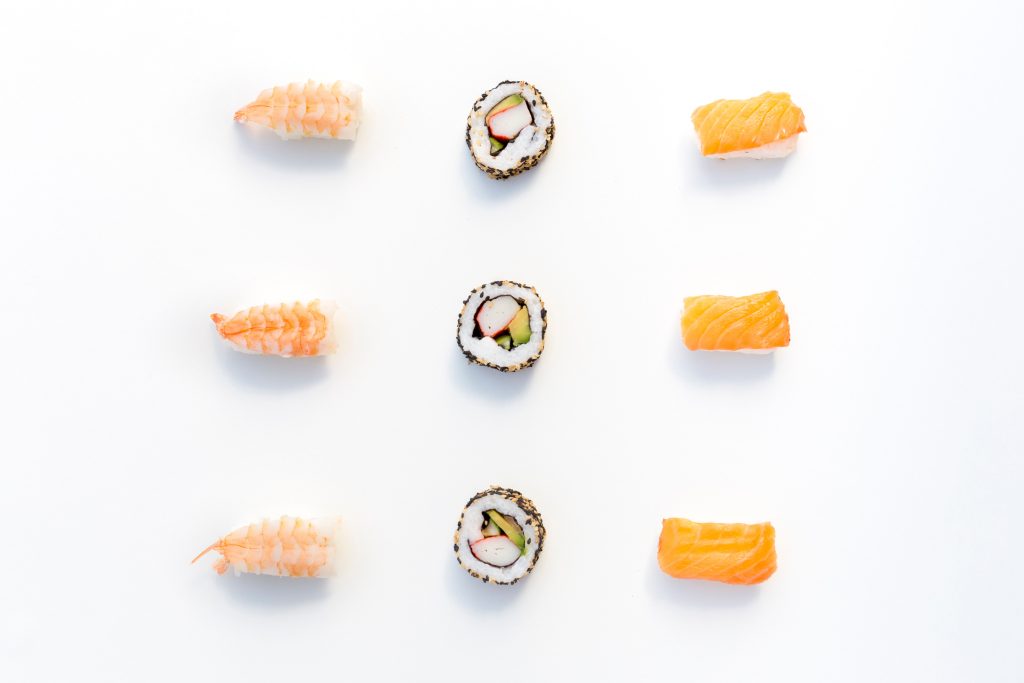
Undercooked or raw food (including meat, fish, eggs, and sprouts)
Raw or undercooked meat of any kind, including shellfish, should also be avoided altogether.
Raw eggs and sprouts, such as alfalfa, clover, radish, and mung bean sprouts, should be avoided as well.
All of these can be contaminated with bacteria and/or parasites, which are harmful to both mom and baby.

Unpasteurized products
Unpasteurized milk and milk products may contain harmful bacteria that can cause infection, so it’s best to avoid consuming unpasteurized milk products or anything that contains unpasteurized milk products.
Soft cheese, including brie, feta, blue cheese, and queso fresco, are often made with unpasteurized milk and, unfortunately, should be avoided.
Freshly squeezed juice is also unpasteurized. For safety, it’s best to skip juice bars and avoid drinking freshly squeezed juices at restaurants, because unpasteurized juices may contain bacteria like salmonella or E. coli if not washed properly. Certain bottle juices you find at the store may also be unpasteurized, so make sure to check the label!
If you plan to juice at home, make sure to buy organic fruits and vegetables, and wash them thoroughly. Do not store the juice for longer than 24 hours.
Always double-check the labels of any dairy products or fruit juices you plan to buy and make sure it indicates the product has been pasteurized or made with pasteurized milk/juice.

Caffeine
Caffeine can be consumed in limited amounts but should be avoided as much as possible. Some experts say that it’s safe to consume 150 to 300 mg per day, so keep that in consideration when consuming any coffee, soda, tea, or chocolate.

Alcohol
Alcohol should be avoided entirely while pregnant. Drinking alcohol during pregnancy, even a small amount, can cause birth defects and other complications.

Processed junk foods
Processed junk food is low in nutrients, hard to digest, and contains excess sugar and added fats, which may cause unwanted weight gain and increase your chances of pregnancy complications, such as gestational diabetes, and other birth complications.
A healthy whole food diet is extremely important to ensure you and your baby are getting enough nutrients.
Limit your consumption of processed junk foods as much as possible while pregnant, and make sure to eat enough fruits and vegetables in your diet.

Herbal tea
Since herbal teas do not contain any caffeine, you may be wondering if they are ok to drink during pregnancy. Some herbal teas are, and some are not, but there isn’t a lot of data on most herbs and how they affect an unborn baby. There is no clear answer to this one. So when it comes to any herbal tea, it’s best to check with your health care provider to make sure it’s ok.
What should a pregnant woman eat during the second trimester?
Now that we’ve covered the list of foods you should avoid, here’s a list of nutrients that are most important for a healthy pregnancy.
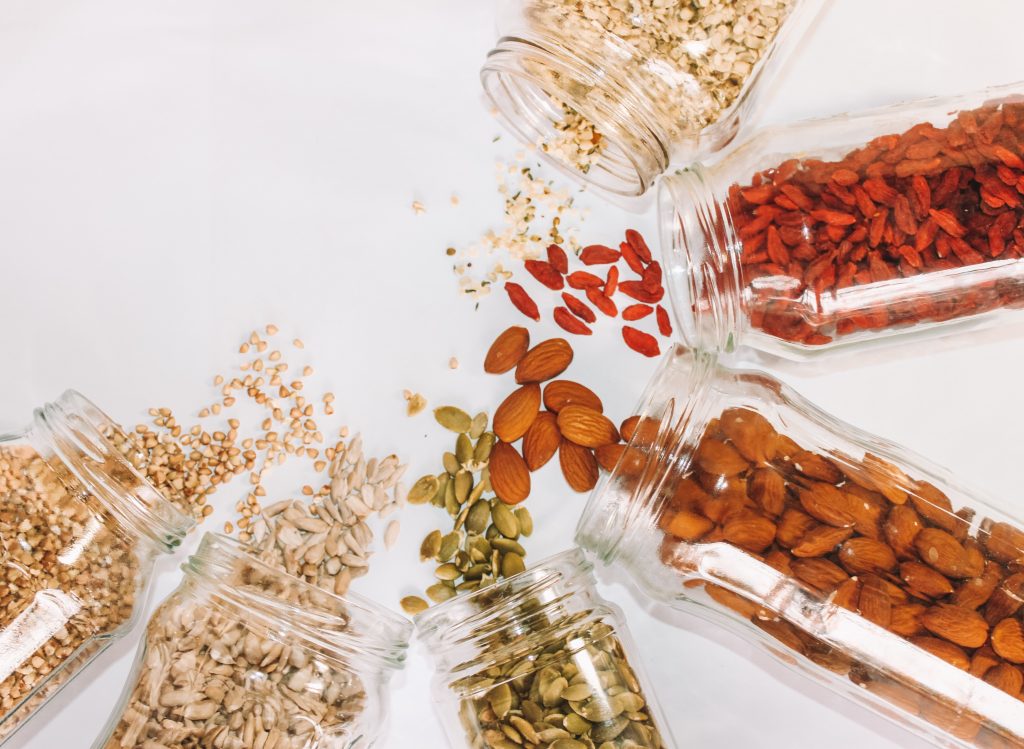
Iron
Iron helps to carry oxygen to your developing baby. A deficiency in iron may cause anemia, which increases the risk of premature birth and postpartum depression.
Vitamin C helps the body absorb iron, so it’s ideal to eat foods such as oranges, orange juice, strawberries, tomatoes, and other sources of vitamin C at the same time.
Sources of iron include:
- lean meat
- cooked seafood
- leafy green vegetables
- nuts
- beans and lentils
- whole grains, including bread and oatmeal
- fortified breakfast cereals
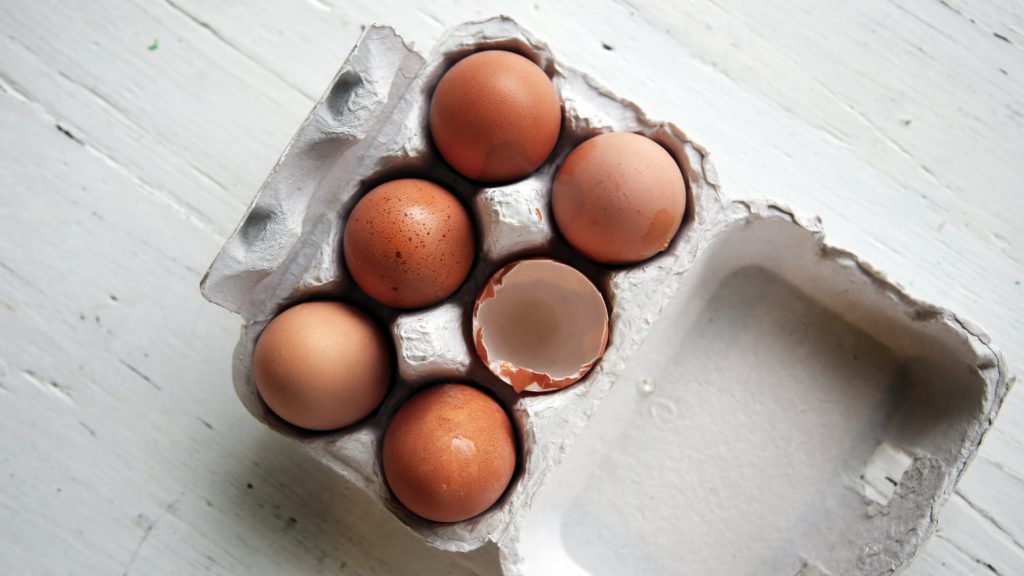
Protein
Consuming protein helps both you and your baby grow properly.
Good sources of protein include:
- lean meats
- nuts
- tofu and tempeh
- eggs
- fish (cooked, not raw)
- peas, beans, and lentils
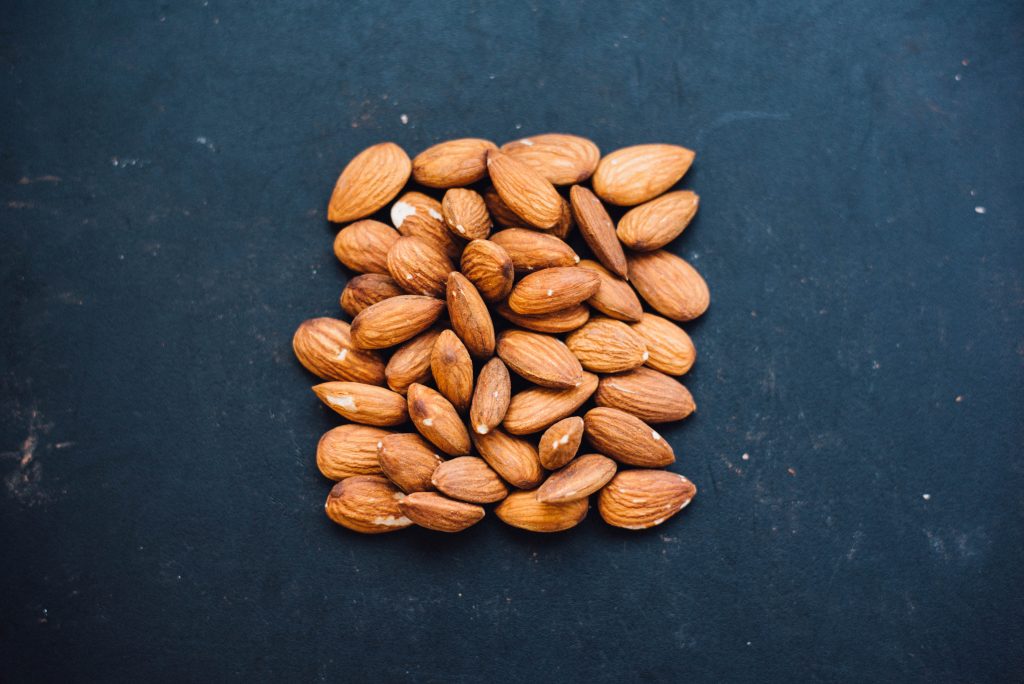
Calcium
Calcium helps the development of your baby’s bones and teeth, as well as muscles, nerves, and circulatory system.
Calcium-rich foods include:
- dairy (milk, yogurt, pasteurized cheese)
- eggs
- tofu
- white beans
- almonds
- sardines and salmon (with bones)
- greens, such as kale, broccoli, and turnip greens
- calcium-fortified fruit juices and breakfast cereals
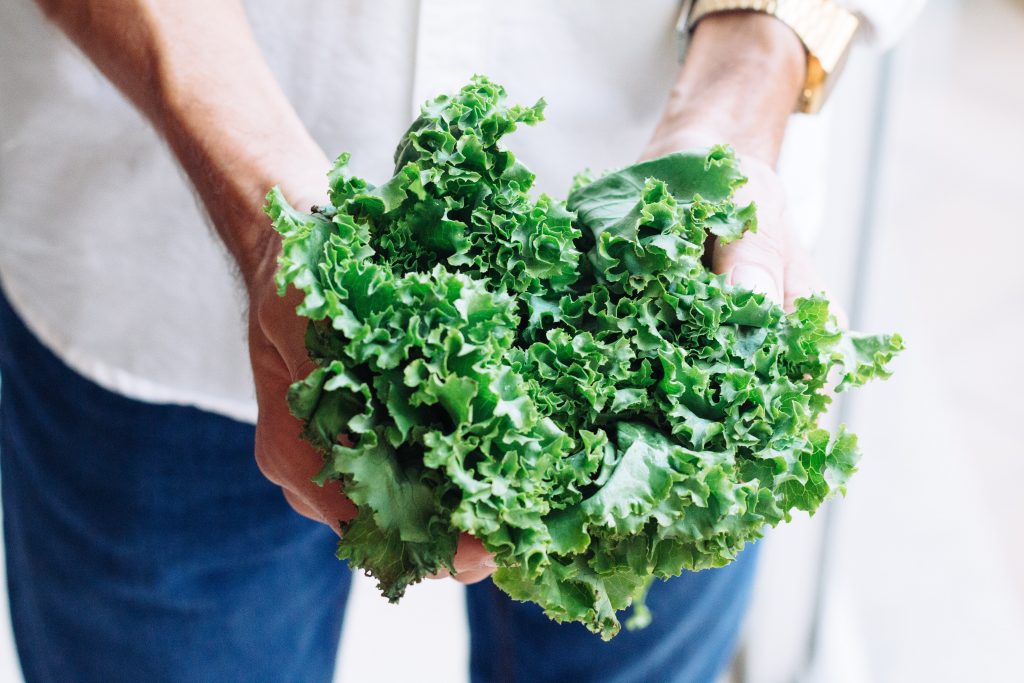
Folate
Folate is essential during pregnancy. It helps prevent developmental defects and reduces the risk of premature birth.
Food sources of folate include:
- black-eyed peas and other legumes
- fortified cereals
- dark green leafy vegetables, including spinach, cabbage, and collard greens
- oranges
- whole grains, such as rice
Folic acid is the synthetic form of folate. To make sure you are getting enough folate, it is recommended to take a prenatal vitamin that contains either folate or folic acid.

Vitamin D
Vitamin D is essential for the development of your baby’s bones and teeth, and many people may not know they are deficient. Make sure to include good sources of vitamin D in your diet, especially if you do no get much sun exposure.
Food sources of vitamin D include:
- fatty fish, such as salmon, fresh tuna, and mackerel
- fish liver oils
- beef liver
- cheese
- egg yolks
- UV-exposed mushrooms
- fortified juices and other drinks
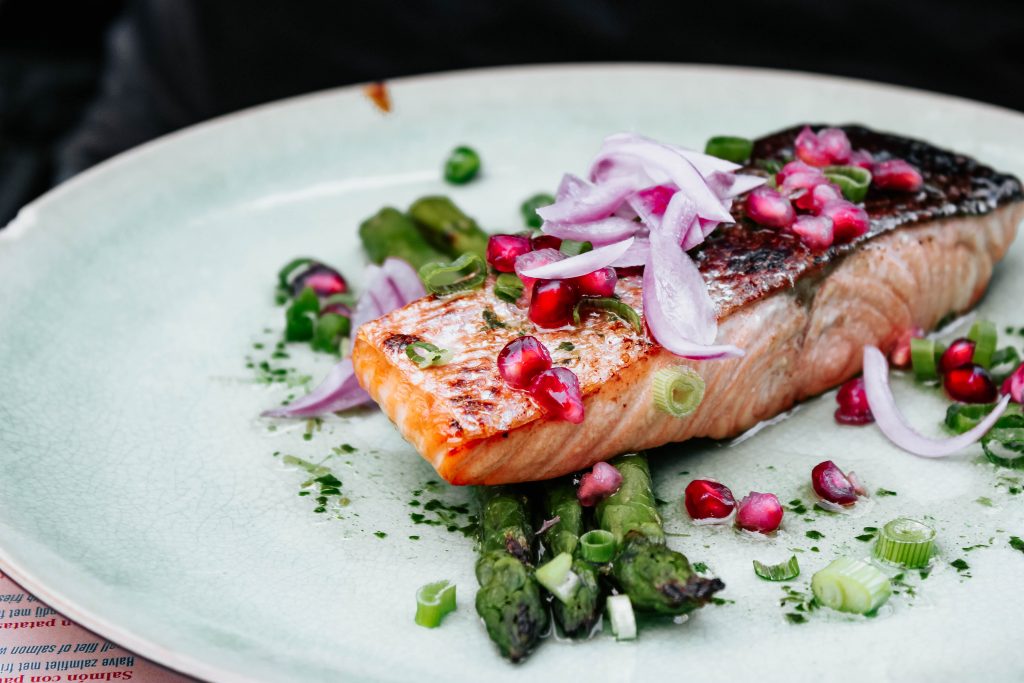
Omega-3 fatty acids
Omega-3 fatty acids support the heart, brain, eyes, immune system, and central nervous system. They may prevent birth complications and the risk of postpartum depression.
Good sources of omega-3 fatty acids include:
- oily fish, including salmon, mackerel, fresh tuna, herring, and sardines
- fish oil
- flaxseeds
- chia seeds

Fluids
Remember to drink enough water! Dehydration during pregnancy can contribute to developmental and birth complications. Make sure to get at least 8-12 glasses of water each day.
2. Exercises to avoid
Finding the energy to work out is hard, and even more so when you’re pregnant. As hard as it may be, there are several benefits of keeping a consistent workout routine throughout your pregnancy.
Exercise may help with some of the negative side effects of pregnancy, and it will also help you recover more quickly after giving birth.
With that said, there are some things to consider before you go run off to do an intense workout. Below is a list of tips to safely get your workout in while pregnant.
Don’t lie on your back
After the first trimester, it’s important not to do any exercises that require you to lie on your back. Lying on your back could restrict blood flow to the baby.
Don’t push yourself too hard
Always listen to your body when exercising. Don’t overtire yourself, and don’t try anything drastically different from your exercise level before pregnancy.
Avoid contact sports or high-intensity exercises
Stay away from activities that could put you at risk of falling or overheating. Contact sports and high-intensity exercises may be too strenuous and could lead to miscarriage, damage to the fetus, or preterm labor.
You also want to avoid activities that require you to make rapid changes in direction. During pregnancy, your center of gravity shifts, which affects your balance and may cause you to stumble or fall more easily.
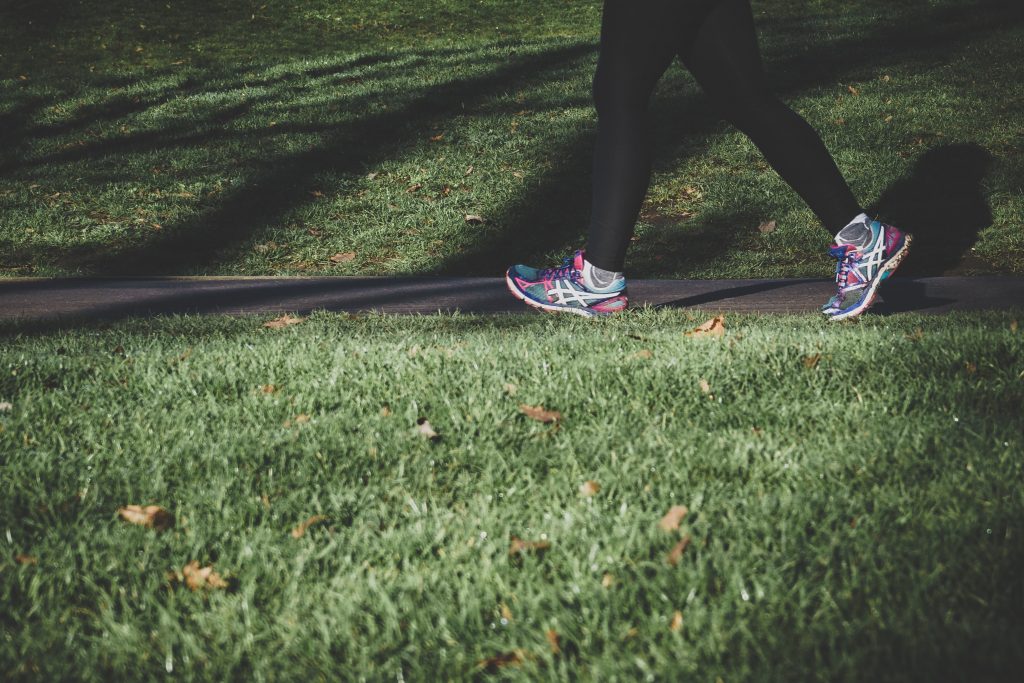
Don’t exercise if you feel something is wrong
If you get dizzy while exercising, or experience bleeding or fluid leaking, stop exercising immediately and consult with your health care provider if necessary.
Before starting any new exercise regime, check with your doctor. It’s also important to warm up and cool down before and after workout sessions. And make sure to stay hydrated!
3. Other things to avoid
Hot bath, sauna, or jacuzzi
Avoid taking a hot bath or using the sauna, jacuzzi, or anything else that may cause your body’s core temperature to rise. An increase in your body’s core temperature may affect your baby’s development. It also can cause overheating, dehydration, and fainting.
X-rays
It’s best to avoid having any x-rays while pregnant. Repeated exposure to radiation can damage the body’s cells and increase the risk of cancer developing. There is also a slight risk of x-rays causing birth defects or physical and mental developmental problems.
Many women get their teeth cleaned while pregnant. If you need to get a dental x-ray, ask your dentist if you can wait until after your pregnancy.
Cleaning products
When pregnant, you may have an urge to start organizing and cleaning your house to get ready for your little one. A good practice is to always check the labels of cleaning products to make sure there are no safety warnings for pregnant women. And make sure to open the doors and windows, so the room is well ventilated while cleaning.
Lifting heavy objects
Avoid lifting heavy objects while pregnant, if possible. Lifting heavy objects may cause premature labor or may cause you to pull a muscle.
Always ask for help first, but if you do need to lift something heavy, be extra cautious and use proper lifting techniques. Bend with your knees, use your legs, and do not make any jerking or sudden movements while lifting.
Sleeping on your back
It’s not recommended to sleep on your back starting your second trimester. The weight of your uterus can compress a major blood vessel and disrupt the blood flow to your baby. It may also cause nausea, dizziness, and shortness of breath.
Bringing it all together
With so many things to consider, pregnancy can be incredibly overwhelming, especially if this is your first. Just take things one day at a time and remember to avoid too much stress! Take a deep breath, relax, and enjoy your second trimester while you can 🙂

Leave a Reply